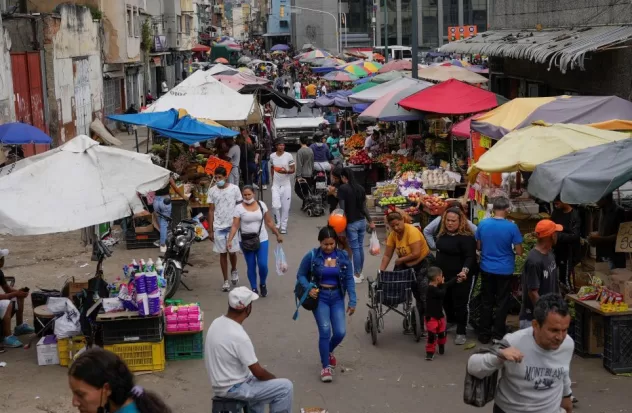MIAMI — The Chavista regime has bankrupted Venezuela with the theft of more than $600 billion over more than 20 years since 21st century socialism led by Hugo Chávez arrived.
This was stated through his social networks by the Venezuelan lawyer, journalist and writer, Emmanuel Rincón, when referring to the eighth episode of the series “The Chavista Plague”, directed by the Venezuelan exile Gustavo Tovar Arroyo, in which the model of corruption that has been used by those who have governed one of the richest countries in Latin America, to lead Venezuelans to live in ruin and misery.
Rincón also wrote on his
During the second edition of the documentary made up of 14 chapters, which will be published weekly every Sunday until April 28, you can see interviews with different personalities, Venezuelan and foreign politicians such as former presidents Andrés Pastrana of Colombia or Felipe González of Spain, the former ambassador of the South American nation before the United Nations (UN), Diego Arria and the president of the Venezuelan newspaper El Nacional, Miguel Henrique Otero, among others.
In addition to the participation of a new generation of politicians who emerged from the student movement such as Yon Goicochea, Daniel Ceballos, Freddy Guevara, David Smolansky, among others.
The former ambassador of the South American nation to the United Nations (UN), Diego Arria, assured during his speech that the late ruler Hugo Chávez Frías, with his arrival to power, became the main accomplice of corruption in Venezuela.
In the documentary series it is recalled that in 2015, the NGO Transparency International published the Corruption Perception Index, in which it ranked Venezuela and Haiti as the most corrupt states in America.
For his part, the deputy to the National Assembly in 2015, Freddy Guevara highlighted the levels of poverty and food shortages that Venezuela found itself in a few years ago, which in his opinion was caused by the corrupt political pattern of the regime.
It should be remembered that the United States Treasury Department imposed sanctions in 2019 on three stepchildren of Nicolás Maduro, for being involved in a corruption network related to the importation and distribution of food.
Walter, Yosser and Yoswal Gavidia Flores, sons of Cilia Flores, were accused of having received bribes from Colombian businessman Alex Nain Saab Mora, associated with the Venezuelan state food distribution program known as the Local Supply and Production Committees (CLAP). ) created in 2016.
Through socialism, the regime has managed to commit a legitimized theft that has led Venezuela to the worst political, economic and social crisis in its history. Which has caused more than 8 million Venezuelans to be forced to seek a better future in other countries in the world.
On the other hand, today, a teacher in Venezuela, like other sectors of the South American nation, earns 3 dollars, a salary that is not enough to cover their basic needs.
A model without control
For his part, the president of the Venezuelan newspaper El Nacional, Miguel Henrique Otero, indicated that Hugo Chávez created a model in which until today there is no type of control, through which his people generated greater corruption than that of all other mandates. above together.
While for the retired Venezuelan general and former president of Petróleos de Venezuela (PDVSA) between 2000 and 2002, Guaicaipuro Lameda, this corruption in which the oil country is immersed is due to the fact that the Venezuelan state oil company has been used as a front for carry out “very shady businesses” that have compromised that country internationally.
In turn, Antonieta Mendoza de López, human rights activist and mother of former political prisoner, Leopoldo López, assured that Chavismo established corruption as a “state policy” in Venezuela to keep the people dominated.
“The Chavista Plague” is a series produced without profit and a sequel to the documentary “Chavismo: The Plague of the 21st Century”, made by Tovar in 2018, with which he set out to break down what the years of Chavismo have meant. for Venezuela in one piece.
Source: Editorial Diario Las Américas


